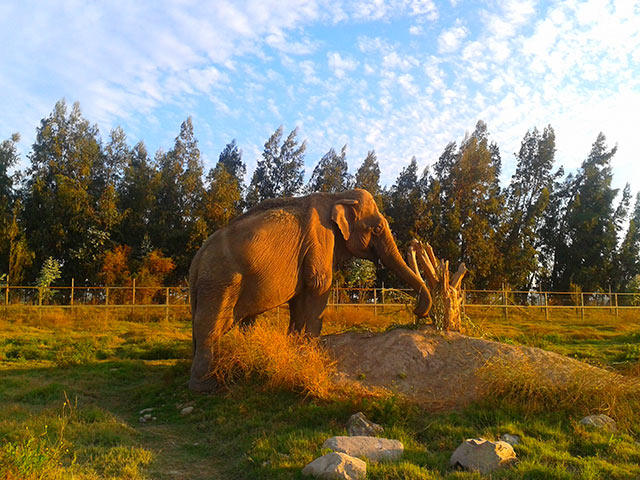Updates on Ramba

Ramba
The Sanctuary community is well aware of the effort to find sanctuary for Ramba, the “Last Circus Elephant In Chile.” Global Sanctuary for Elephants CEO and Board President, Scott Blais, has these updates to share:
Ramba’s care epitomizes the saying that sometimes it takes a village. Through collaboration, the life of the last circus elephant in Chile has changed drastically, and is heading down the path to her finding true sanctuary. TES agreed to send funds to help with Ramba’s quality of life over 6 months, until Elephant Sanctuary Brazil is able to accept her. The biggest improvement was with her direct care: increased money for salaries allowed for hiring 2 caregivers that are able to spend more of their day with Ramba.
As the cold weather arrives in Chile, it’s important to have someone at the barn early in the morning to give her access outside, and late at night to close her inside. Ramba has a better appetite first thing in the morning, so it enables them to increase her overall hay consumption, which is necessary to keep weight on her throughout the colder months. With their singular focus, Ramba’s caregivers are able to be much more attentive to her habits, to notice the subtle changes and adapt to her evolving needs
Funding also went towards a truckload of quality grass hay and to replace the rubber flaps on her barn. Ramba is an elephant who doesn’t do well in the cold. Some elephants are willing to break through the ice to go for a winter swim, while other elephants shiver when it falls below 50 degrees; Ramba is the latter. And because of her age and her not so perfect kidneys, she needs extra care during the cold months.
Her torn rubber flaps were replaced with stronger reinforced rubber, ensuring that her barn stays toasty warm during the cold nights. Her quality grass hay is lower in protein, so it is easier for her to digest and she eats more of it; all of these things helping to ensure that she is more comfortable and healthier these upcoming months.
As the temperatures continue to drop in Chile, her disposition is still very bright, active, and she continues to put on weight. Her caregivers have continued with her training and footwork and she is responding wonderfully to her adjusted style of management. With the realization that those around her are paying attention to the little things and listening to what she is trying to communicate, she continues to blossom.
